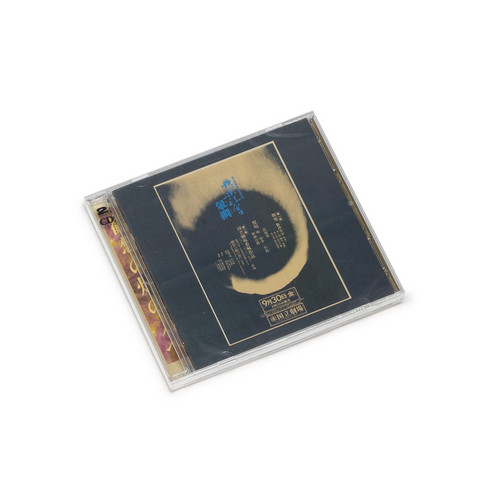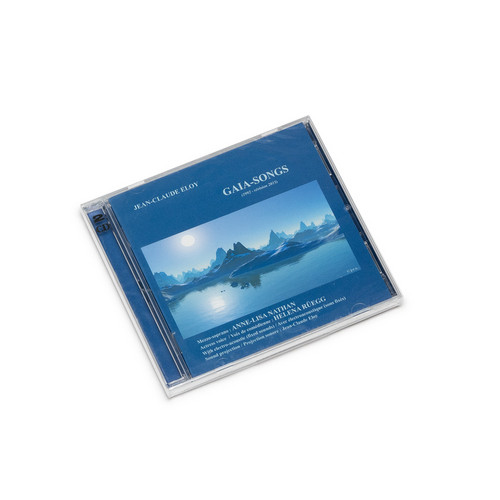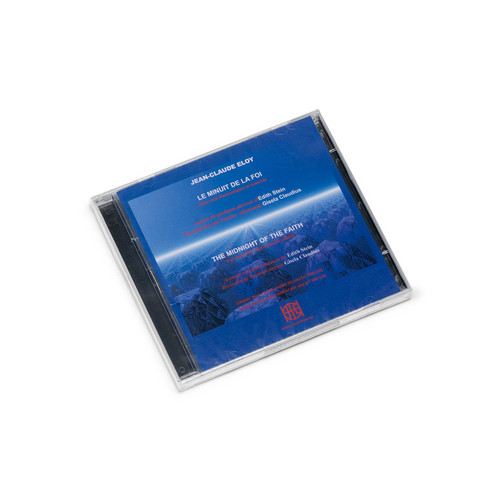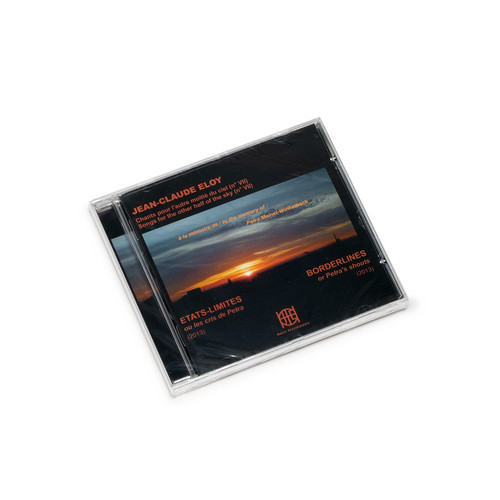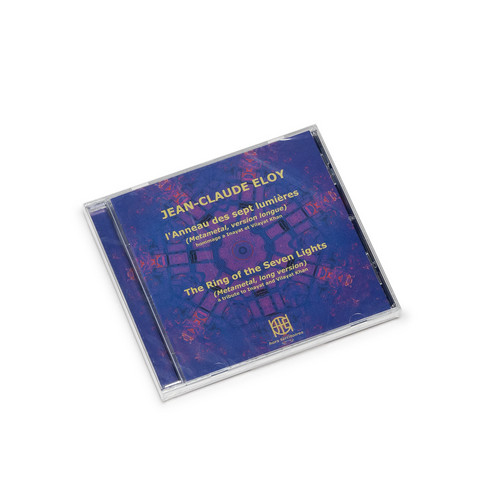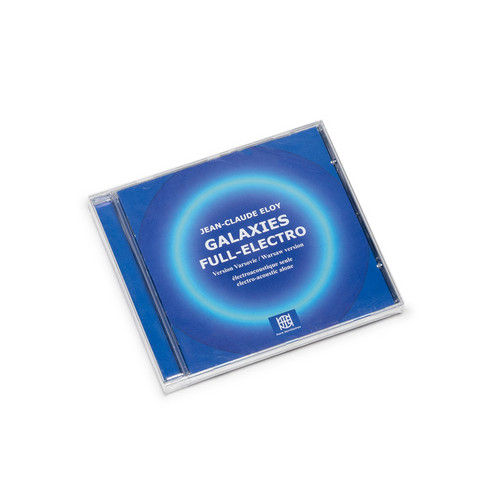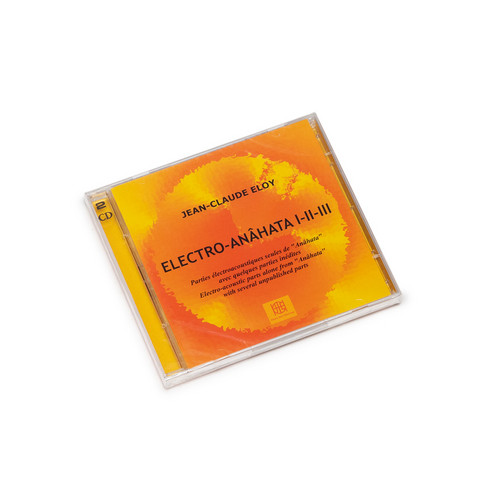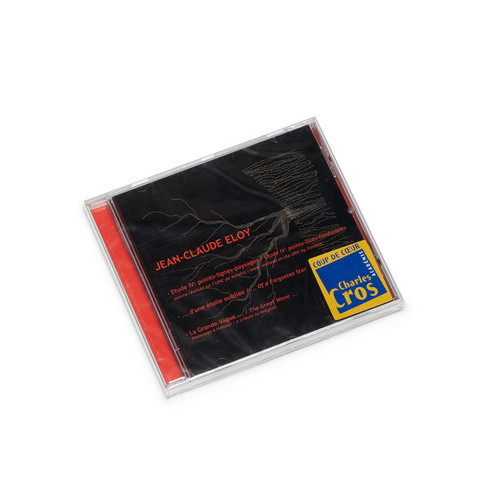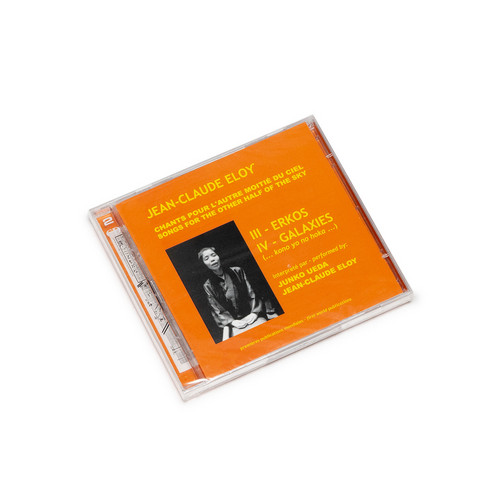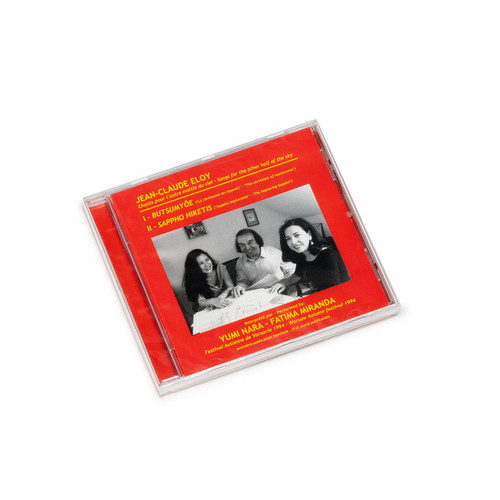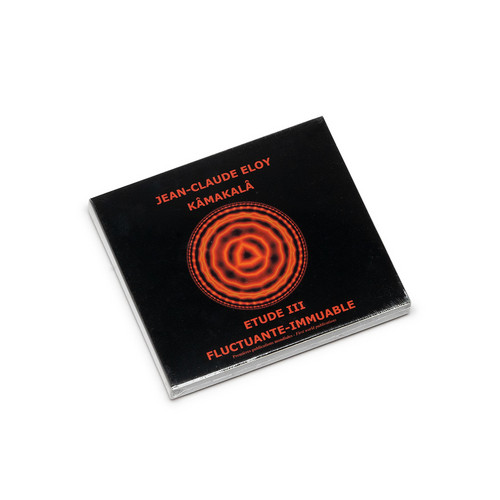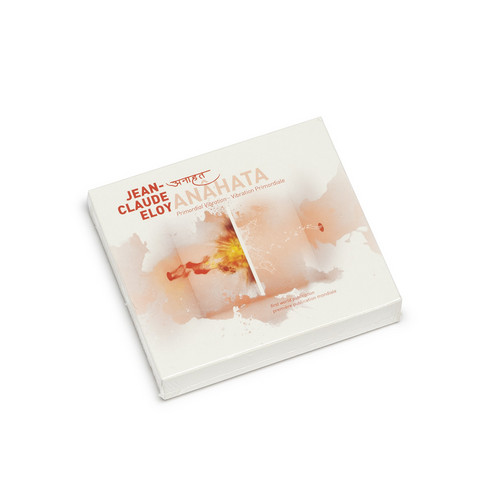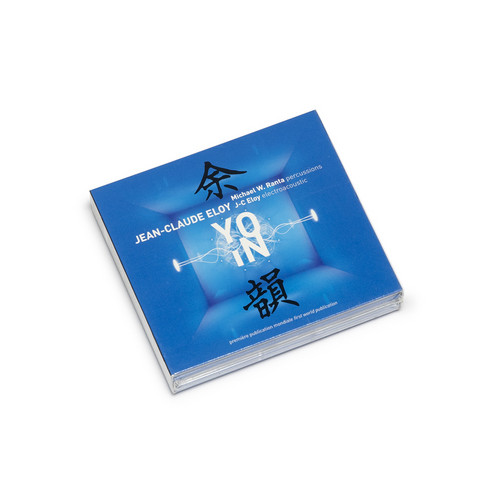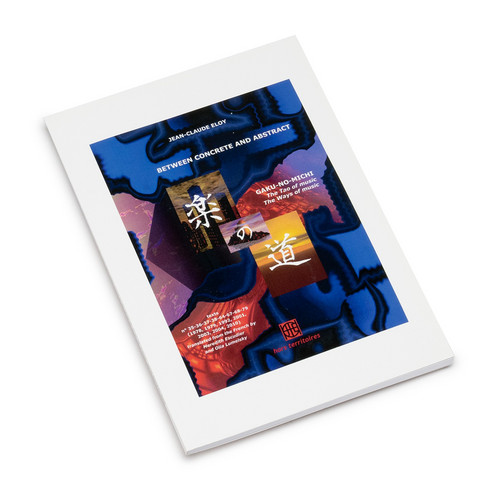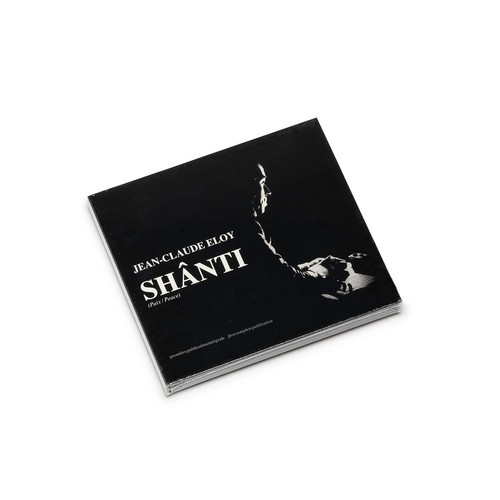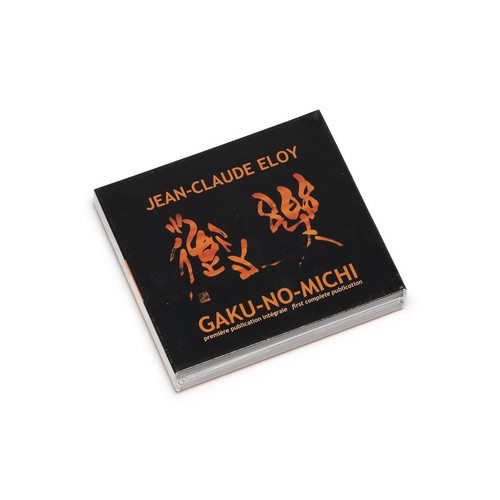★Hors Territories
A l'approche du Feu Méditant
Of all the works by Jean-Claude Eloy, the 1983 "Approaching the Meditative Flame...", for 27 instrumentalists of the "Gagaku" orchestra from Japan, and two choruses of "Shômyô" Buddhist monks (a work known partially in the West by a double LP album "Harmonia Mundi") and more particularly, "Anâhata", for five traditional soloists from Japan (three instrumentalists and two monk singers), percussions, and a major electro-acoustic part (presented in different festivals in Europe) – are the two works…
Gaia-Songs
“Gaia-Songs” (1992 - revision 2015). Songs for the other half of the sky n° V - VI. For a soprano (or mezzo-soprano) solo and an actress voice (Sprechgesang technique) with electro-acoustic (fixed sounds). Anne-Lisa Nathan, mezzo-soprano. Helena Rüegg, actress voice. “First there’s this relation between sung voices and spoken voices with regard to the electro-acoustic parts. The sung v…
Le Minuit de la Foi
'Le Minuit de la Foi' ('The midnight of the faith') (2014) for electronic and concrete sounds, around selected sentences by Edith Stein recorded by German actress Gisela Claudius. New work from Jean-Claude Eloy, a long piece under the power of expanded sounds and sacred words.'Le minuit de la foi' is a double album, each CD of which forms a stand-alone entity. Each CD can therefore be listened to separetly. However, you do need to liSten to the full album for it to become meaningful through its …
Etats-Limites ou les cris de Petra
“Borderlines or Petra’s shouts. Songs for the other half of the sky N°VII” (2013) After some reissue or first edition of old composition, here’s a brand new composition from Jean-Claude Eloy. Made mostly with voice, bells and synthetic sounds this piece works like an electroacoustic lightning. “A kind of salutary madness”.
L'anneau des sept lumieres
The Ring of the Seven Lights (Metametal, long version) (1994-95 / revision and new master: 2013). Seven continuous variations from a single Bonshô sample(Buddhist temple traditional bell from Japan), a tribute to Inayat and Vilayat Khan.
Jean-Claude Eloy: 'I created and partially realized it in 1994-95 during this conversion of Anâhata into an electro-acoustic version alone. I first made a short version out of it which integrated into Electro-Anâhata and became the fourth station within the firs…
Galaxies full-electro
Galaxies' (Warsaw version), electro-acoustic alone. Fully electro-acoustic version of Anâhata / Galaxies realized on the composer's personal computer from the original electro-acoustic recordings of this work.Electronic music studios where the original Anâhata / Galaxies were produced (1984-86): Studio of the Sweelinck Conservatory of Music, Amsterdam (1984 and 1986): the entire production (pre-recorded material processing, new material generation, premixing) and all final mixing processes. Toky…
Electro-Anahata
Electro-Anâhata (1986-1994). Fully electro-acoustic version of Anâhata realized on the composer's personal computer from the original electro-acoustic recordings of this work. Electronic music studios where the original Anâhata was produced (1984-86) : Studio of the Sweelinck Conservatory of Music, Amsterdam (1984 and 1986): the entire production (pre-recorded material processing, new material generation, premixing) and all final mixing processes. Tokyo-Gakuso studio, Tokyo (1983): for the Shô a…
Etude IV / D'une Etoile Oubliee / La Grande Vague
Etude IV: points-lines-landscapes' (1979). This work is designed as an all-electronic piece without considering any configuration with soloist parts for later use (unlike the two following pieces featured on this CD).
It was realized by Jean-Claude Eloy in 1979 on the CEMAMu's UPIC upon Iannis Xenakis's invitation to whom this work is dedicated as a friend. The UPIC (Unité Polyagogique Informatique du CEMAMu) is an electronic tool invented by Iannis Xenakis in the 1970s. It is a graphic interfac…
Erkos / Galaxies (Chants Pour L'Autre Moitie Du Ciel Part I
Songs for the other half of the sky. With 'Erkos' (1990-91) and 'Galaxies' (1986-1996). Performed by Junko Ueda (satsuma biwa and voice) and Jean-Claude Eloy (sound projection). Erkos is a word from the Indo-European language and means song, praise. It is close to the Sanskrit word Arkas (hymn, chant, radiance) and to the Tokharien term Yarke (reverence, homage). The texts consist of extracts from the Devî-Upanishad and Devî-Mâhâtmya writings, in Sanskrit. In those texts, an homage is paid to t…
Butsumyoe / Sappho Hiketis
J.C. Eloy book (English text) around the cycle 'Songs for the other half of the sky' with the following pieces 'Butsumyoê', 'Sappho hikètis', 'Erkos', 'Galaxies', 'Gaia-songs'. Interview, documents, technicazl specification, photos. A CD with 'Butsumyoê' and 'Sappho hikètis'.'Butsumyôe' (1989). For voices, percussions and electroacoustic. With Yumi Nara and Fatima Miranda, voice and percussions. In 'Butsumyôe' ('The ceremony of Repentance') the singer Yumi Nara (soprano) occupies the function of…
Kamakala / Etude III / Fluctuante Immuable
One of the Jean Claude Eloy' most essential release 'Kâmakalâ. The Energy Triangle' (1971) for three orchestra ensembles, five chorus ensembles, with three conductors. Orchestra and chorus of the WDR, Schola Cantorum, Stuttgart. Conductors : Michel Tabachnik, Bernhard Kontarsky, Jacques Mercier. Kâmakalâ - a Sankrit term meaning energy triangle - refers to India's philosophy (Tantric Shivaïsm) and is expresses here as the appearance of energy, which is the erotic and cosmic energy (Kama), that w…
Anahata (1984-86)
Subtitled: Primordial Vibration / Sound ceremonial with a contemplative character. Composed in 1983-1986. Sound ceremonial with a contemplative character for two voices of Japanese Buddhist monks (traditional Shômyô techniques - traditional temple chanting - in a larger, modern and creative form), three Japanese Gagaku instrumentalists (traditional court music in a modern and creative form), one percussionist (with a percussion instrument orchestra) and electro-acoustic (fixed interactive sounds…
Yo-In (1980)
First world publication for the seminal Yo-In (1980) an electro-acoustic work produced in Japan and revisited by the Museum of Modern Art of the City of Paris in 1981. “Sound Theater for an imaginary rite”. Yo-Inleads to a sort of “celebration-ritualization of the day of man on Earth”.Jean-Claude Eloy discovered the meaning of Yo-In by going deeper into the culture of Japan where he had been invited by Toru Takemitsu in 1970: “Yo-In, echo, rhyme, resonance, psychic reverberation”. Karheinz Stock…
Between Concrete And Abstract. Gaku-No-Michi (Book)
For those who loves the piece, this is a nice way to learn more about it. For those who don't know it yet, it will be a good introduction to listen to it. Gaku-no-Michi is an electro-acoustic work of wide proportions realised in 1977-78 at the Denshi Ongaku Studio (electronic music studio) of NHK radio (Nippon Hoso Kyokai), Tokyo. This work has been programed in numerous countries by various modern music festivals, as a full evening concert, from 1978 to 2006. This publication is made of a group…
Shanti (1972-73)
Packaged in a 6 panel digipak. Includes a 16 page booklet in French & English. A massive, four side-long drone-epic masterpiece “Shânti” (1972-73) for electronic and concrete sounds, in a spectacular double CD digipack issue. A hundred-and-thirty-five minute piece of "meditation music" for a four-track magnetic tape by Jean-Claude Eloy, produced in the Electronic Studio of the Radio of Cologne “The term “meditation music” triggered many conflicting comments including positive ones (“... let us s…
Gaku-No-Michi (1977-78)
Restocked. “Gaku-no-michi”, Tao of music or Ways of music. Film without images for electronic and concrete sounds. Produced at the electronic music studio of NHK Radio, Tokyo 1977-78. “Jean-Claude Eloy is a French composer, born in 1938. He studied at the Paris National Superior Conservatory of Music, where he won First Prizes in Piano, Chamber Music, Counterpoint, Ondes Martenot, and studied composition with Darius Milhaud. He attended summer courses at Darmstadt (Pousseur, Scherchen, Messiaen,…
